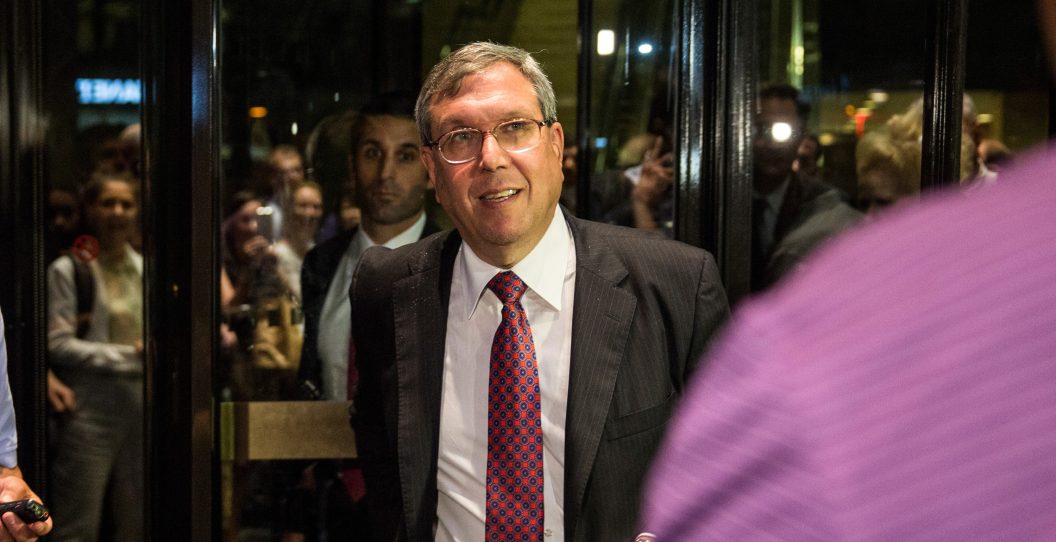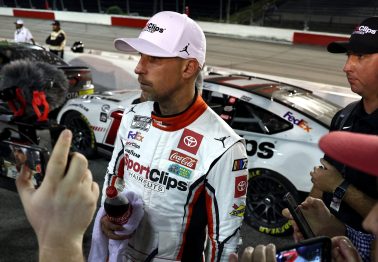With both the Daytona 500 and the 2024 NASCAR season set to take off today at 4 p.m. EST, the buzz around the sport should be about what sort of race to expect and who will eventually take the checkered flag in first position. Instead, the hot topic around the garage area, media center and among fans is the stalled negotiations between NASCAR and its teams over the next charter agreement.
NASCAR's teams collectively took an aggressive and big step forward over the weekend by hiring Jeffrey Kessler, one of the country's top antitrust and sports attorneys, to advise the teams in their negotiations with NASCAR, according to Jenna Fryer from the Associated Press.
Kessler's name might be familiar to those who follow the business of sports. He successfully fought for Division I college football and basketball athletes in their fight for financial rewards in the use of their names, images and likenesses. He was also successful in the United States Women's National Soccer Team's fight for equal pay. Additionally, he was part of the legal team that won free agency for players in the NFL in the landmark McNeil V. The NFL case.
NASCAR's current charter agreement expires at the end of 2024. The sport and its teams had been negotiating a new deal, but the teams stepped away from the negotiating table after receiving an unsatisfactory offer from NASCAR regarding sharing revenue from the sport's newly signed $7.7 billion TV rights contract.
On Saturday, Feb. 17, majority owners of each of NASCAR's 15 charter teams met to discuss strategy in the stalled negotiations. While they invited NASCAR to the meeting, no representatives from the sport's governing body attended.
"We want to make a deal, we are just looking for a fair deal," Curtis Polk, a part owner of 23XI Racing and member of the teams' negotiating committee, told The Associated Press. "There is no give and take. We've been told 'This is all there is; there is no flexibility.' That's not a negotiation."
Additionally, the team owners have asked that their charters become permanent, similar to franchise deals in other sports, such as the NFL, NBA and MLB. NASCAR has so far been adamant that it retain the rights to revoke charters at its discretion under any new charter contract. Team owners also want more of a say in how the sport is governed and for a voice in how new financial opportunities, such as revenue from legal gambling, are distributed.
"I think that this whole thing is such a monopoly that you kind of get shut down in different areas, you're allowed in some places, but not in others," said three-time Daytona 500 winner Denny Hamlin, owner of 23XI Racing with Michael Jordan and Polk. "There's only a seat if you're allowed a seat and they're only going to allow a seat in a few certain situations, but I do think there's avenues to the drivers being more equitable in the sport in the future."
Team owners' desire for more revenue and a larger voice in NASCAR's competition and financial governance comes at a time when the old financial model of corporate sponsorship for teams to race on the track is becoming harder to find. For the most part, the big mega-deals with companies supporting a team for the entire season are long gone, and the teams have had to cobble together multiple sponsorship packages with smaller financial contributions to compete for the entire season. The team owners insist that a new model must be adopted and that NASCAR share more of the financial revenue with them.
"All we've asked for is to help make us healthier by giving us a disproportionate share of incremental revenue," Polk said. "You don't have to go back into your pockets for what you are used to getting every year. Just the incremental revenue. So yeah, if you're used to getting $7, we don't want you to go down to $5. We still want you to maybe get $7.50, but we want a bigger share of this increment to go to us to help us — because we need help."
More: Is NASCAR Headed Toward Civil War?

